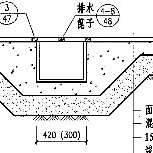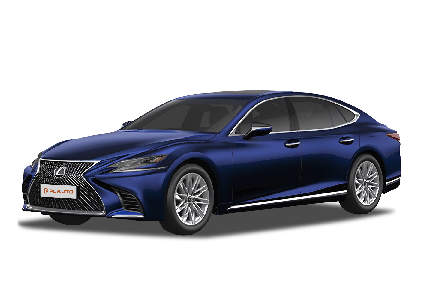Q
Does Lexus sell more than BMW?
Looking at global sales figures, BMW typically outsells Lexus overall. But here in Malaysia? Their performance can vary quite a bit, and that all comes down to model preferences and how each brand positions itself in the market.
BMW's known for its sporty performance and cutting-edge luxury tech, right? It's got a strong following among younger buyers and those who live for that high-performance driving experience. Lexus, on the other hand, has built its reputation on rock-solid reliability and that supremely comfortable ride – it's a big hit with family-focused buyers who really value quality and top-notch after-sales service.
In Malaysia, Lexus hybrids like the UX250h and ES300h are flying off the shelves thanks to their impressive fuel efficiency. BMW, meanwhile, keeps the momentum going with steady demand for its X Series SUVs and the ever-popular 3 Series sedan – both are loved for the sheer driving pleasure they deliver and the strong brand cachet BMW carries.
One thing to keep in mind: Malaysian luxury car buyers are often influenced by factors like import duties, fuel prices, and the reach of after-sales service networks. So, if you're in the market, my advice? Head down to the showrooms, take both for a spin, and make sure to compare their local service offerings and any ongoing promotions. That way, you can make a choice that's perfectly tailored to your needs.
Special Disclaimer: This content is published by users and does not represent the views or position of PCauto.
Related Q&A
Q
How much is an oil change for a Lexus LS 500?
In Malaysia, an oil change for the Lexus LS 500 typically runs between RM500 and RM1,000. The exact price hinges on the type of oil used—like factory synthetic or high-performance blends—and where you get the service done: official dealerships or independent workshops. Dealerships usually throw in a more thorough inspection, but you'll pay a premium for that peace of mind.
Sticking to regular oil changes is non-negotiable for keeping that engine performing at its peak and extending its lifespan, especially for a high-end luxury performer like the LS 500. Lexus recommends servicing every 10,000 kilometers or 12 months, whichever comes first—always best to double-check your owner’s manual for specifics.
Another key point: oil viscosity. In Malaysia’s hot, tropical weather, using the right grade—think 5W-30 or 0W-20—makes a big difference in keeping the engine running smoothly under the heat. If your budget allows, springing for a factory maintenance package is worth considering. These often bundle multiple checks and services, which does a better job of keeping your LS 500 in top shape long-term.
Q
Does the 2020 Lexus LS 500 have remote start?
Yep, the 2020 Lexus LS 500 does come with remote start here in Malaysia. Owners can fire up the engine using either the smart key fob or the Lexus Enform smartphone app. This lets you pre-heat or pre-cool the cabin before getting in, which is a real comfort boost—super handy especially with our hot and humid weather. Typically, the remote start system works together with the climate control and even the seat adjustments, so by the time you hop in, the interior’s just how you like it.
A quick heads-up though: how far you can be from the car and how well it works can depend on your surroundings—stuff like buildings blocking the signal or interference can play a part. Also, Lexus has built in some safety smarts here. For example, if you start the engine remotely but don’t unlock the doors after a while, it’ll automatically shut off. That helps avoid wasting fuel or any potential security issues.
For Malaysian LS 500 owners, this feature isn’t just about convenience; it’s also great for getting the car ready before a long drive. Lexus, being a luxury brand, has always focused on user experience with their tech, and remote start is just one part of that. Throw in things like adaptive cruise control and lane-keeping assist, and it all adds up to making driving both easier and safer.
Q
How much is a Lexus LS 500 2020?
If you're scouring Malaysia's used car market for a 2020 Lexus LS 500, you'll typically find prices hovering between RM 450,000 and RM 600,000. Of course, the exact figure hinges on factors like the car's condition, mileage, spec level, and whether it's still under the original factory warranty. As Lexus' flagship luxury sedan, the LS 500 packs a serious punch under the hood: a 3.5-liter twin-turbo V6 churning out 416 horsepower and 600 Nm of torque, paired with a buttery-smooth 10-speed automatic transmission that delivers both refinement and grunt when you need it. Step inside, and you're greeted by premium leather, elegant wood trim, a crisp 12.3-inch infotainment screen, a killer Mark Levinson sound system, and a suite of active safety tech—think pre-collision systems and lane-keeping assist. For Malaysian buyers, the LS 500 isn't just a luxury ride; it's a statement of status and taste. Plus, Lexus has a solid after-sales network here, giving owners peace of mind. If you're in the market for a used one, I’d recommend sticking to official certified channels or reputable dealers to ensure you’re getting a quality vehicle with reliable support down the line.
Q
What is the 2020 Lexus LS 500 maintenance cost?
The maintenance costs for the 2020 Lexus LS 500 in Malaysia can vary depending on mileage and the specific services needed. Typically, you're looking at a basic service every 10,000 km or 12 months, which should set you back around RM800 to RM1,200. That usually covers an oil and oil filter change along with a general inspection. For more comprehensive services – think brake fluid or transmission fluid replacements – you'll be in the RM2,500 to RM4,000 range. Exact prices can fluctuate a bit depending on which service center you visit and if you're sticking strictly with genuine Lexus parts.
As you'd expect with a luxury brand, Lexus maintenance isn't the cheapest, but you do get what you pay for in terms of service quality and technical expertise. In Malaysia especially, authorized Lexus service centers offer thorough inspections and the peace of mind that comes with genuine parts, helping keep your LS 500 in top shape for the long haul. Beyond just keeping the car running smoothly, regular servicing also helps preserve its resale value down the line. My advice? Stick closely to the maintenance schedule in your owner's manual and always opt for official authorized centers to ensure you're getting the most reliable care possible.
Q
What is the 2020 Lexus LS's resale value?
The resale value of a 2020 Lexus LS in Malaysia hinges on several key factors: overall condition, mileage, trim level, and service history. From what we’re seeing in the market, a 3-year-old LS 500 or LS 500h typically retains around 60-70% of its original sticker price, translating to roughly RM350,000 to RM450,000. Higher-spec variants or the hybrid models might fetch a bit more.
Lexus has built a solid reputation in Malaysia for reliability and premium after-sales service, which keeps its used cars holding value steadily. Vehicles with a full service record from authorized dealerships are especially sought-after—they’re like gold dust here.
But here’s the thing: used car prices in Malaysia can also swing based on new car promotions, currency exchange rates, and current stock levels. If you’re in the market, I’d recommend checking official certified pre-owned channels or trusted platforms for real-time pricing. It’s also smart to cross-shop against German or other Japanese luxury rivals like the Mercedes S-Class or BMW 7 Series to get a full picture of where the LS stands.
And if you’re selling? Hold onto that complete service book and keep those original parts—they’ll make a big difference in getting top dollar for your LS.
Q
What is the maintenance cost for a LS500?
As a luxury flagship sedan, the Lexus LS500 does come with relatively high maintenance costs in Malaysia, but that’s par for the course given its premium positioning and exceptional quality. Basic servicing – think oil changes, filter checks, and the usual essentials – will set you back roughly RM1,500 to RM2,500 per visit. Of course, the final bill can vary a bit depending on which authorized service center you go to and whether you stick strictly with genuine Lexus parts. For major services, like when it’s time to replace transmission fluid or brake fluid, you’re looking at a heftier RM4,000 to RM6,000.
Here’s the upside though: Lexus offers a solid 5-year or 100,000-kilometer factory warranty in Malaysia. On top of that, some local dealers might even throw in complimentary maintenance packages, which can really help soften the blow of long-term ownership costs.
If you’re an LS500 owner in Malaysia, sticking with authorized service centers is non-negotiable. Not only do they guarantee genuine parts, but you also get that peace of mind from professional inspections – trust me, skimping on repairs with dodgy shops will almost always end up costing you more down the line.
Sure, the LS500’s maintenance isn’t cheap compared to regular brands, but its rock-solid reliability and low failure rates often translate to fewer unexpected repair bills over time. That’s a big part of why Lexus continues to hold such strong appeal in Malaysia’s luxury car market.
Q
How does the 2020 Lexus LS handle in snow?
The 2020 Lexus LS's performance in snow largely hinges on its available all-wheel drive (AWD) system and suite of electronic aids. Now, Malaysia's climate is plenty warm, but getting a handle on these capabilities is super useful for owners planning a self-drive trip to colder climes. The LS 500 AWD variant comes with a sophisticated dynamic torque distribution setup that automatically shifts power between the front and rear wheels on slippery surfaces, really boosting grip. Then there's Vehicle Stability Control (VSC) and Traction Control (TRC) chipping in to keep wheel spin in check, which is a big plus when things get icy.
On top of that, there's a dedicated Snow driving mode that tweaks the throttle response and transmission shift logic to better suit low-traction conditions. A quick heads-up though – how well it handles snow also depends a lot on your tires. Fitting winter tires is definitely the way to go to get the most out of the LS in those conditions.
For Malaysian owners, sure, you're not dealing with snow locally, but understanding these tech features gives you a sense of how the car adapts in extreme environments. And let's be real, those electronic aids aren't just for snow – they work great on rain-soaked roads after a heavy downpour too, really highlighting the LS's all-weather design philosophy. If you are gearing up for a winter road trip abroad, it's a good idea to chat with your dealer beforehand about any specific vehicle settings and tire recommendations.
Q
How much is a fully loaded 2020 Lexus LS?
The fully loaded 2020 Lexus LS in Malaysia will set you back around RM 900k to RM 1.1 million, though the exact number can vary depending on the spec you choose, dealer discounts, and market conditions at the time. As Lexus' flagship luxury sedan, it's powered by either a 5.0-liter naturally aspirated V8 or a 3.5-liter V6 hybrid setup, delivering both impressive performance and fuel efficiency. Inside, you're treated to top-shelf features like the Mark Levinson premium sound system, semi-aniline leather seats, a massive 24-inch heads-up display, and the Lexus Safety System+ 2.0 suite of smart driver aids. For Malaysian buyers, the LS isn't just a status symbol – its reputation for reliability and solid after-sales service make it a smart pick for the long haul. Lexus also offers various financing plans and warranty packages in Malaysia to help make owning this flagship more accessible. If you're keen on specific specs or current promotions, your best bet is to hit up your local Lexus dealer for the latest deets.
Q
Which Lexus LS has a V8?
In the Malaysian market, the V8-powered models in the Lexus LS lineup mainly include the fourth-generation (2007-2017) LS 460 and LS 600h L, along with the fifth-generation (2018-present) LS 500. While some overseas markets do offer a V8 variant of the fifth-gen LS, the officially imported versions in Malaysia primarily focus on the 3.5L V6 twin-turbo and hybrid powertrains. The fourth-gen LS 460 packs a 4.6L naturally aspirated V8, churning out around 380 horsepower, while the LS 600h L steps up with a 5.0L V8 hybrid system delivering a combined 445 horsepower. Both models have long been favorites among high-end Malaysian buyers, cherished for their silky-smooth performance and top-tier luxury features.
It’s worth noting, though, that as global emissions regulations have tightened, Lexus has gradually shifted toward smaller-displacement turbocharged engines and hybrid tech in recent years. As a result, V8-powered LS models have become pretty scarce in Malaysia these days. For die-hard V8 enthusiasts, your best bet might be scouring parallel import channels for used or leftover fourth-gen LS V8s—just keep in mind the potentially higher maintenance costs and road tax differences. Still, Lexus V8s are legendary for their durability and whisper-quiet operation, and when paired with the brand’s signature sound-deadening magic, they serve up a driving experience that’s nothing short of premium.
Q
Is the 2020 Lexus LS a good car?
The 2020 Lexus LS is a premium luxury sedan that's been turning heads in the Malaysian market. What really sets it apart from the pack is its exceptional comfort, meticulously crafted interior, and rock-solid reliability – all hallmarks of a true class leader. Under the hood, you've got options: a 3.5-liter V6 twin-turbo engine or a 3.5-liter V6 hybrid setup. Both deliver smooth power delivery and impressive fuel efficiency, making the LS a great fit for Malaysia's mix of city streets and highway stretches.
Step inside, and the LS pampers you with top-tier leather, elegant wood trim, and tasteful metal accents. The 12.3-inch infotainment screen and Mark Levinson sound system are just the cherries on top, ensuring a truly luxurious in-cabin experience. When it comes to safety, the Lexus Safety System+ 2.0 has you covered with features like pre-collision warning, lane keep assist, and adaptive cruise control – all working together to keep you secure on the road.
For Malaysian buyers, the LS also scores big on practicality. Lexus has a well-established after-sales service network here, and the brand itself holds strong resale value, which helps keep long-term ownership costs in check. If your priorities are comfort, dependability, and strong brand cachet, the 2020 LS is definitely worth a serious look. That said, it's worth noting that its German rivals in the same class tend to lean more into driving dynamics, while the Japanese approach, as seen here, really emphasizes serenity and long-lasting durability. Ultimately, it all comes down to personal preference – so weigh what matters most to you.
Popular Cars
Model Year
Car Compare
Car Photo
Latest Q&A
Q
What is the top selling car brand in Malaysia 2025?
Perodua was the best-selling brand in the Malaysian automotive market in 2025, with total annual sales reaching 359,904 units, far exceeding Proton's 151,561 units in second place. This achievement confirms its absolute advantages in cost-effectiveness and market penetration as a local brand. Toyota ranked third with 129,085 units, continuing to lead the non-national car segment, while Honda ranked fourth with 75,599 units, reflecting the solid position of Japanese brands in the traditional fuel vehicle sector. Notably, Chinese brands Chery and BYD entered the top six with 31,666 units and 14,407 units respectively, with year-on-year growth rates as high as 60% and 68%, demonstrating the success of their electric vehicle and cost-effective SUV strategies. From the monthly data, Perodua's monthly sales remained stable at over 30,000 units, and set a record of 33,657 units in November, with its flagship model Bezza continuing to lead the segment. Overall, the market pattern in 2025 showed a situation of dominance by the two national car giants, steady performance of Japanese brands, and the rise of Chinese brands. Although electric vehicle brands like Tesla did not enter the top ten of the year, their monthly sales have exceeded 1,300 units, indicating that future competition will become more diversified.
Q
What is the richest car in Malaysia?
Currently, the most expensive car model in the Malaysian market is the Bugatti Brouillard 2026, priced at a staggering MYR 90,000,000. This car represents the pinnacle of the ultra-luxury automobile sector. Its W16 engine and extreme lightweight design make it a symbol of performance and luxury. Second is the Bugatti Centodieci 2022, priced at MYR 30,000,000. This limited-edition model pays tribute to the classic EB110 and only 10 units were produced worldwide. The Ferrari F80 series ranks third with prices ranging from MYR 15,600,000 to MYR 16,000,000, and its hybrid system showcases the brand's cutting-edge technology. It is worth noting that the prices of ultra-luxury cars are significantly influenced by factors such as limited production, handcrafted customization, and import duties. Bugatti models are generally fully imported, while some Ferrari models can be customized through official channels. In comparison, locally assembled luxury cars in Malaysia, such as the Porsche Cayenne CKD version, are more competitively priced, but top-tier supercars are still mainly imported from European original factories, and their price systems are basically in line with the international market.
Q
Which car brand has the best resale value in Malaysia?
In the Malaysian used car market, Japanese brands such as Toyota and Honda, as well as local brands Perodua and Proton, usually have high resale value retention rates. Among them, models like Toyota Hilux and Perodua Myvi are highly favored for their durability and low maintenance costs. Although German cars like Mercedes-Benz are common in the used car market, their residual value rates are slightly lower than those of mainstream Japanese models due to high maintenance costs. Local brands can maintain relatively stable prices when resold by virtue of their high cost performance and extensive after-sales networks. For example, Proton X50 has shown outstanding residual value performance in recent years due to the technical endorsement from its cooperation with Geely. It should be noted that vehicle residual value is affected by multiple factors such as vehicle condition, mileage, market demand, and economic environment. It is recommended to refer to data from authoritative used car platforms or professional evaluation reports before purchasing a car.
Q
What is the best selling Chinese car in Malaysia?
Currently, the best-selling Chinese brand car in the Malaysian market is Chery, which sold 31,666 units in 2025, ranking fifth in the brand sales list with a year-on-year growth of 60%. Its compact SUV Jaecoo J7 exceeded 10,000 units in sales as a single model, becoming the most outstanding Chinese model in the local market. BYD followed closely with 14,407 units sold, a year-on-year increase of 68%, primarily driven by its new energy models. In terms of growth trends, both Chery and BYD exhibit strong upward momentum. Chery better meets local consumer demand with its cost-effective fuel and hybrid models, while BYD is gradually expanding its market share through its advantages in electrification technology. Other Chinese brands such as Great Wall Haval and Jetour have annual sales below 5,000 units, showing a significant gap compared to the leading brands. Notably, Chery has maintained a growth rate exceeding 60% for two consecutive years, with its product positioning highly aligned with Malaysian consumer preferences. It is expected to retain its leading position among Chinese brands in the near term.
Q
Who has the best car history report?
In Malaysia, as representatives of local automotive brands, Proton and Perodua possess the most comprehensive and historically significant reports on automotive development. Since its establishment in 1985, Proton has gradually achieved localization by adopting Mitsubishi's technology; its models such as Saga and Persona have become national car icons, and in recent years, it has launched SUV models like the X70 and ventured into the electric vehicle sector. Perodua, through its partnership with Daihatsu, has captured approximately 40% of the market share with economical compact cars such as Myvi and Axia, and its reports document the transformation from imported component substitution to independent R&D. Both brands regularly release production and sales data as well as technical white papers through the Malaysian Automotive Association (MAA), while third-party platforms like AutoBuzz and Wapcar also provide long-term reliability tracking reports based on user feedback. Notably, local brand reports typically encompass government policy support (e.g., domestic tax incentives), local supply chain integration, and export milestones (such as Proton's expansion into the Middle East market)—content rarely featured in international brand reports. For specific model histories, one may consult Proton Saga's 35-year evolution records or Perodua Myvi's detailed archives highlighting its 15 consecutive years as the best-selling model.
View MoreRelated News

Lexus LS may turn into a six-wheel MPV, so why does the LS Concept use a six-wheel design?
MichaelOct 16, 2025

Lexus launches LS 500 Heritage Edition in the United States, which may be discontinued afterwards
Kevin WongSep 28, 2025

Aerodynamic kit + Optimized V8 engine! Tom's Racing modified Lexus LC is so stunning?
MichaelJan 14, 2026

Lexus releases RZ 600e F SPORT Performance, 0–100 km/h acceleration takes only 4.4 seconds
JamesDec 26, 2025

Lexus GX550 is here, a luxury version of the Toyota Land Cruiser Prado, priced from RM 780,000
RobertDec 8, 2025
View More












 Cars
Cars




Pros
Cons